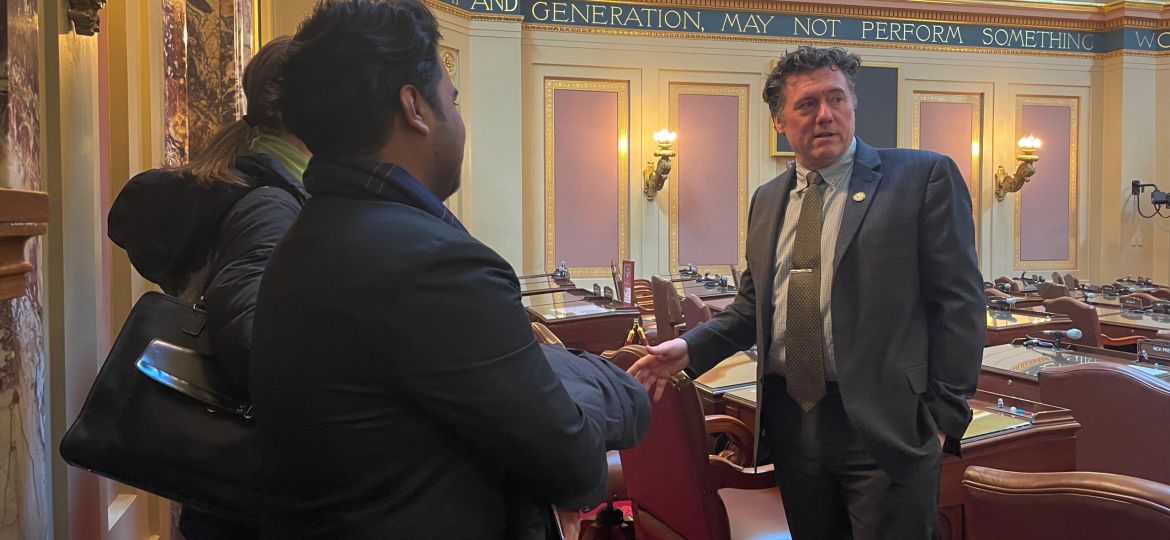
Caption: St. Olaf students meet with State Senator Putnam, Photo courtesy of Kenzie Nguyen
Students from various Minnesota private colleges filled a senate hearing room at the Minnesota Capitol in St. Paul, Minnesota, preparing to persuade their legislators to show support for a proposed bill. Currently, a third of Minnesotan college students are left out of last year’s historic legislature investment in college affordability — the North Star Promise Program. The grant acts as a “last dollar” program for Minnesotan students at public institutions whose household income is under $80,000. It covers tuition and fees after the addition of other grants and scholarships awarded. Minnesota Private College Council (MPCC) hosted a “Day at the Capitol” on Feb. 28 for private college students around the state including St. Catherine, St. Scholastica, Macalester, and St. Olaf to lobby in hopes of bridging this financial gap.
“The outcomes they invest in you is not different than when they invest in students at public universities,” MPCC Day at the Capitol Coordinator Dennis Egan said at the lobbying training held prior to students talking to legislators about the financial proposal.
Throughout the day, students lobbied legislators to back the Promise Equalization Scholarship — a state scholarship that would help low- and middle-income private college students with their college tuition and fees. The proposal asks that Minnesota legislators invest around $13.9 million to this scholarship, averaging $1,000 per low- and middle-income student at a private college.
When asked how the Promise Equalization Scholarship will help students, St. Olaf President Susan Rundell Singer said that “it is an equity issue — every Minnesota resident should have the right to select the college that best aligns with their goals, their dreams, and where they are most likely to be successful.”
According to a Student Financial Wellness Survey conducted by Trellis Company, around 60 percent of students who identify as first-generation, BIPOC, or low-income worry about paying for college tuition, which can impact mental health and academic success. The Promise Equalization Scholarship’s goal is to help further alleviate the burdens of college financials for private college students similar to how the North Star Promise Program does for those attending a public institution.
Many representatives and state senators, such as Representative Kristi Pursell ’03, are willing to sign the proposal for the Promise Equalization Scholarship to be passed.
“We want to support our public education while maintaining other options for students to find what works best for them,” Pursell said in a meeting with St. Olaf students.
However, some legislators raised skepticism about the scholarship’s financial viability.
The Promise Equalization Scholarship aims to allow college decisions to be made based on fit not affordability. It will give students the chance to broaden their higher education search. However, it is not enough. To make a private college education more affordable for low and middle-income families, private institutions must do their part as well.

